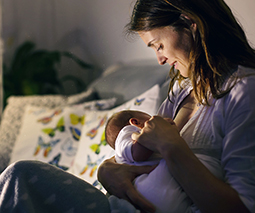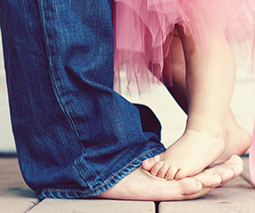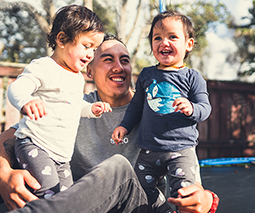This is why you need to reach out to a recently separated couple

The fun times in other people’s lives are always fun to be part of – and the rules/etiquette around events like weddings and the birth of new babies are usually comforting and clear.
No clear rules
But when it comes to the stuff that really tests a person – death, illness, relationships, financial hardship – there appear to be no rules at all about how to interact and speak with the people you love.
Which could help explain the confusing (and often hurtful) silence from people in your life, who don’t reach out when life takes a turn for the worse.
Ask anyone who has been through a life crisis, and they’ll tell you while there were always a handful of people who knew what to say, there were plenty who never said a word.
When there are young children involved, these tough life scenarios can feel particularly fraught.
For the four single mothers interviewed for this story – who have all gone through a separation or divorce in the past three years, the silence from people around them has struck them all as hurtful and confusing.
Vicki
Vicki, now a single mum of two girls who live in a close-knit community. So when she and her husband separated, she decided to take things into her own hands and reach out to their mutual friends and ask that they include both of them in social events. Vicki and her ex-husband had separated amicably, so it was important for her to maintain her friendships and for their daughters to see their mum and dad in social situations together.
Vicki found it extra hurtful when the group appeared to invite her ex-husband to things far more regularly: “I actually confronted them about it and when I did they were kind of awkward about it – saying they felt it was more an event suited to my ex-husband. I was definitely very hurt.”
Alex
Alex, a single mum with one child, puts the awkwardness down to people’s fear of getting close to situations they find confronting.
“I think people feel awkward because they project their marriages onto ours. It’s too close to home. There’s a mentality if it happens to Mick and Sarah, then it could happen to me. It’s also confronting for them to see the hurt and public fallout (i.e. moving out, children asking questions on a public platform). I think this awkwardness has stopped people reaching out to me.”
Jessica
Jessica, a mother of two, says while she felt a bit hurt by the silence around her, she understood the seeming complexity of her situation and the expectation some people felt to “pick a side”.
While Sarah, mum of three, thinks the separation of people in our lives is almost a natural consequence of the way your view of the world changes when you get divorced.
“It’s interesting that we now divide our friends into ‘my ex’s old school friends,’ or ‘met through my ex’ etc. Did we describe friendships like that before? Is it that words now have double meaning no matter where they come from because our trust has been rocked from its very core?”
Angela
Angela, a mum of two, says now she’s experienced the shock and grief of separation, there is no way she’d hesitate to contact anyone she knew going through it.
“My experience has meant that now moving forward when other people I know go through it, that I’d reach out and just send love. Not fish for info, just say hi and say that I am thinking of them and can help if needed.”
Silence is rarely the right response
Helping people find the ‘right’ thing to say to loved ones in crisis is the basis of Kelsey Crowe and Emily McDowell’s beautiful book, called There is no good card for this: What to say and do when life is scary, awful and unfair to people you love.
They say awkwardness around tragedy is universal because no matter how heartfelt, “there really are no words to take away the pain of losing something so precious.”
But silence – they say – is rarely the right response.
“The first time something unimaginably terrible happens to a friend – you may get a pass for awkward behaviour … But as time goes on, if you want to be a responsible adult, you’ve got to do a little better than that.”
“If you’re choosing between saying something and saying nothing, you’re almost always better off saying something,” they write.
Here are some of their lovely ideas for people you know who have gone through divorce or separation – broken down into four sections.
1. If you intend to empathise
Instead of, “Have you thought about counselling?” try, “How are you doing? Or, “Wow, that can be hard” or, “How do you feel about the process in getting to the point.”
2. If you intend to relate
Instead of: “Didn’t so-and-so down the street get divorced?” try, “My brother, who I greatly admire, went through a really similar experience.”
3. If you intend to show perspective
Instead of, “You will find someone else” try, “Once this is all over, I truly believe you will be happier for this.”
4. Practical gestures
They also recommend some practical gestures – sometimes easier if we feel lost for words:
1. Send a funny gift/gag/meme about what to do when you break up – helping the person laugh is always a good thing.
2. Send some balloons or hampers to the person’s new home – to help them settle in and remind them you are thinking of them.
3. Check in regularly – send a text or a photo or leave them a message. But don’t remind them that you left a message (they don’t need to feel pressure to respond).
4. Send a card! Unlike a text or tweet, you can display a card as a reminder that someone was thinking of you. And if you are struggling with what to say, cards do a great job.









